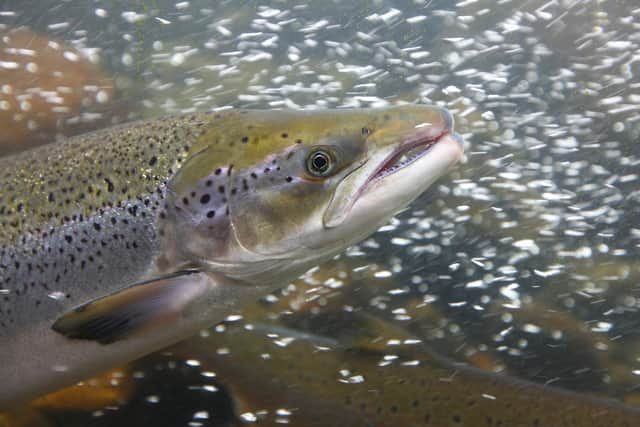Water extraction ban on key wild salmon river welcomed as rain fails to boost flows in Scottish Borders
Last week in the River Tweed catchment – the country’s second largest river basin and an area of special scientific interest – flows in some places had dropped to their lowest levels since records began in 1974.
In addition to its environmental importance, the Tweed is a popular destination for anglers due to hosting one of the best wild stocks of Atlantic Salmon in Europe. Fishing brings in around £24 million to the local economy each year and supports more than 500 jobs.
Advertisement
Hide AdAdvertisement
Hide AdA combination of very low water flows and high temperatures in the river can lead to the death of fish, invertebrates and plants.
While some parts of the river ecology can bounce back quickly, species such as salmon can take years to recover.
Now Scotland’s environmental regulator has suspended abstraction licences to safeguard wildlife.
The move comes at the same time as a similar ban on the River Eden in Fife was lifted on Wednesday after a couple of days of heavy rainfall and good compliance by farmers saw water levels rise.


The River Tweed Commission, the statutory body that manages the catchment, has welcomed the ban, but fears current measures to manage the impacts of climate change are not sufficient.
Jamie Stewart, clerk to the River Tweed Commission, said: “Climate change is already leading to significant variations in weather patterns, with drier summers and wetter winters predicted to continue.
“While the River Tweed Commission welcomes the suspension announcement from Sepa, we believe that the current water scarcity plans are inadequate to protect fish stocks both in the short and longer term.
“We are deeply concerned at the significant problems being created by low water levels and high temperatures for Atlantic Salmon, sea and brown trout, and are raising these concerns with Sepa and the Scottish Government in order to encourage a review of the system allowing the damaging extraction of water from the river by industry and agriculture during prolonged dry conditions.”
Comments
Want to join the conversation? Please or to comment on this article.
